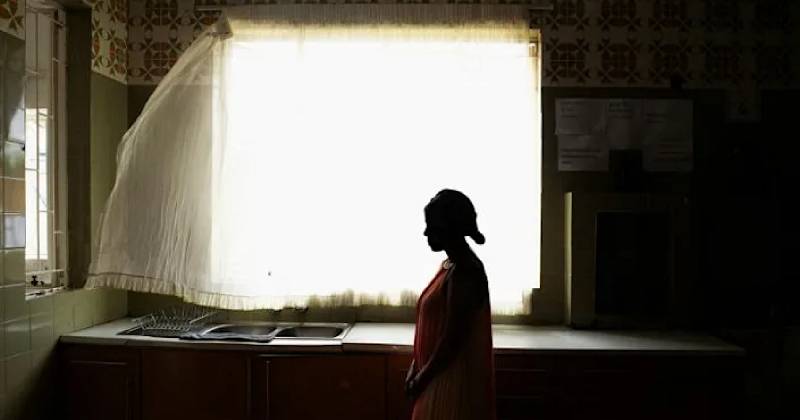
A group of ladies wearing orange bibs, walk across a notoriously crime-ridden Johannesburg ghetto, knocking on houses and stopping anyone they come across on the streets, even teenagers returning from school.
The squads are known as gender-based violence brigades, and their objective is colossal: to combat South Africa’s femicide and violence against women and children.
The cases are heinous, and the figures are staggering.
A law student was murdered and her body was dismembered before being thrown into a suitcase. Another university student was raped and bludgeoned to death inside a post office with an industrial weighing scale. A woman who was eight months pregnant was hanged from a tree.
‘We can’t just ignore what we see until justice is served,’ 52-year-old Juliet Ngonyama, said as she wore an orange bib across her shoulders.
In South Africa, orange is a sign of revolution. In this context, it represents the activists’ commitment to stop the violence that has escalated since the Covid pandemic began.
As the women chat with locals, they uncover cases that would have gone unnoticed otherwise. They walk in couples and engage anybody they come across, male or female.
‘Gender-based violence involves emotionally, physically, financially and psychologically harming women, children and men,’ they explained.
South Africa has an awful reputation of being among the countries with the highest rates of violence against women in the world, 100 rapes each day.
According to government figures, more than 100 rapes are reported every day, with a woman slain every three hours on average.
Rapes increased by 7.1 percent in the latest quarterly crime data, with 9,556 women raped between July and September.
In November, enraged President Cyril Ramaphosa declared that those figures were terrible. He described violence against women after Covid-19, as a ‘second pandemic.’

Post Your Comments